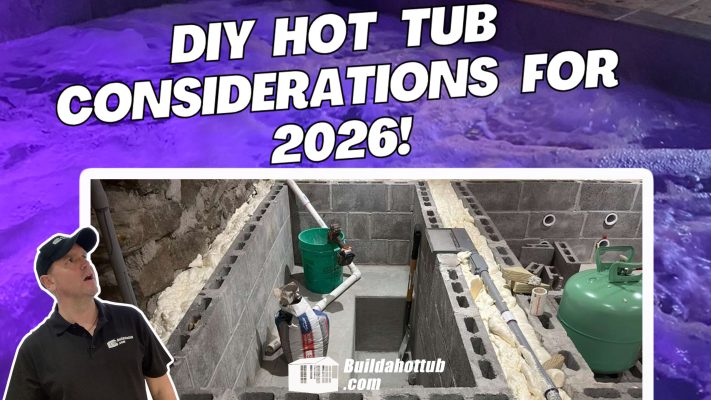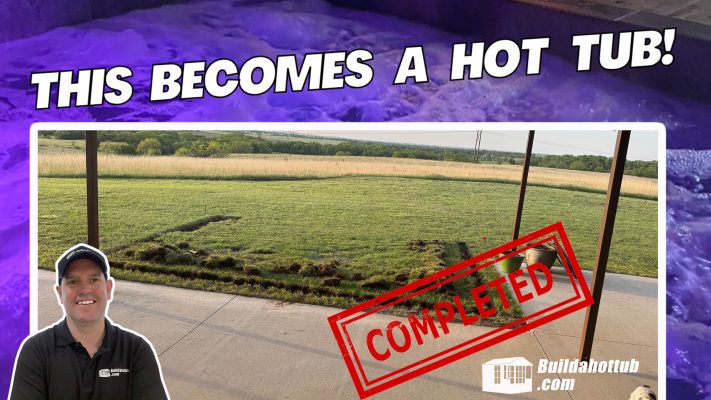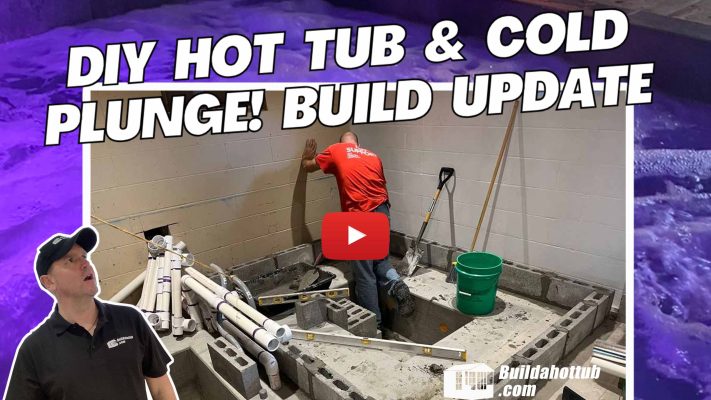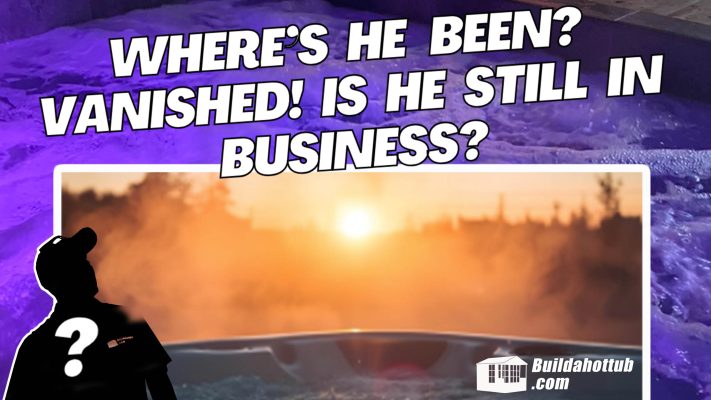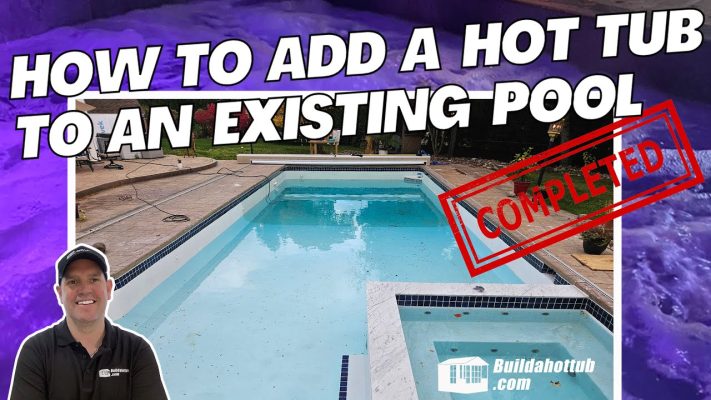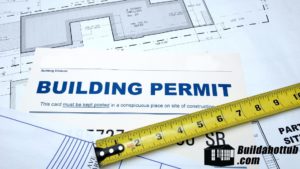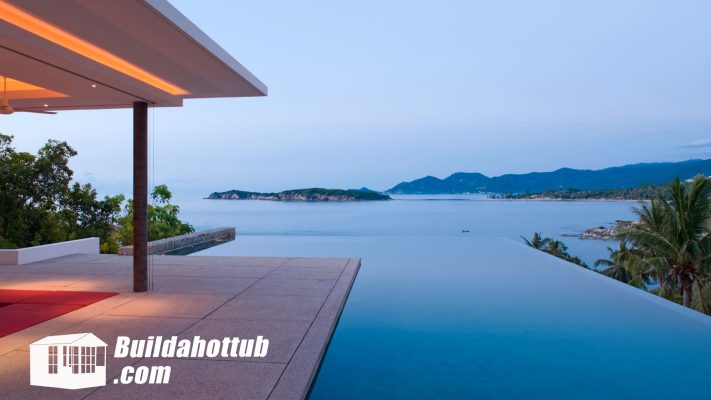If you follow my YouTube, social media, or website, you’ll know I work on more than just hot tubs. I also specialise in swimming pools, plunge pools, cocktail pools, and infinity pools.
An infinity pool is a marvel to look at, with water flowing over the edge to create a magical effect that leaves anyone in awe.
However, there are some key design considerations to keep in mind when building an infinity pool. Here’s everything you need to know when designing a DIY infinity pool!
Note: In case you’re looking for considerations with a zero edge pool then check out my video here.
You can also find me on my socials;
How Does an Infinity Pool Work?
The first thing to understand is how an infinity edge or infinity pool works. It’s straightforward: to create the overflow effect, you need to deliver more water into the pool than it can hold. This excess water flows from either a balance tank or a catching trough.
The entire concept is to overfill the pool slightly to achieve that stunning infinity pool effect.
The Plumbing
The plumbing is quite similar to that of a traditional swimming pool. You’ll need a couple of bottom drains connected in a T-formation, so if one drain becomes blocked, the other remains functional. This setup also balances suction throughout the pool, which is essential for VGB compliance.
Water then moves through the suction side to the filter, then the heater, and finally through a sanitising system, which could use UV, chlorine, or another method. The water re-enters the pool through the returns.
What’s the Difference?
The main difference with an infinity pool is that the water is drawn into a suction tank or catching trough. A key question to consider here is whether you want the option to stop the overflow effect as needed. Sometimes, it can be “noisy” at night or the neighbours don’t like it….
To control the overflow, you’ll need to stop the suction from the balance tank. You can achieve this in two ways: one option is to use a pump with adjustable valves, while the more popular choice for hot tubs is a secondary pump, which provides greater control.
If you are drawing water from the pool and delivering it back to the pool, it will not overflow – pretty simple concept.
A critical design factor is how you’ll filter the water in the balance tank. Since it acts as a large skimmer, all collected debris ends up in the balance tank. To prevent particles from entering the pool, a filtration system in the infinity edge system is essential and of course access to be able to clean it too.
Maximum Occupancy
Another design consideration is the maximum occupancy of your pool, as it directly impacts the required size of the balance tank. An average adult displaces around 15 gallons (70 litres) of water.
For instance, if your pool can accommodate a maximum of 10 people, you’ll need at least 150 gallons or 700 litres in your balance tank. You should also account for additional water in the balance tank to prevent air intake.
A rule of thumb I follow is to double the water capacity required for the maximum number of people. This ensures ample capacity and peace of mind.
Access to the Balance Tank
The balance tank or catching trough acts as a skimmer basket, so debris will inevitably enter the tank. As I have already mentioned, ensure easy access to the balance tank or trough so you can maintain it effectively.
What Kind of Drop Do You Want?
Finally, determine how much water flow you want over the edge. Are you aiming for a gentle trickle or a full-on waterfall effect? This decision needs to be factored in during the design phase.
For example, if you want a waterfall, you may need an additional pump to achieve that effect. This will require some calculations but should be fairly straightforward.
In a Nutshell…
In summary, designing a DIY infinity pool requires careful planning to ensure both functionality and aesthetics. From understanding the mechanics of the overflow effect to properly sizing the balance tank, each design element plays a crucial role in achieving that seamless, stunning infinity edge.
Keep these considerations in mind when you build your pool to ensure you get a great infinity pool!
Can I Help You?
If I can help you in any way I would love to hear from you. You can get in touch using the form below.
Thanks - Andi
 Hi, Andi here. I own Buildahottub.com and also write all of the articles and info pages on the site. Some years back now, I built my own hot tub but struggled to find the information I needed. So, once my tub was complete, I started this website to help others in their own pursuit of hot tub and plunge pools DIY building information.
Hi, Andi here. I own Buildahottub.com and also write all of the articles and info pages on the site. Some years back now, I built my own hot tub but struggled to find the information I needed. So, once my tub was complete, I started this website to help others in their own pursuit of hot tub and plunge pools DIY building information.
Fast forward to 2025, I've helped over 1400+ DIY customers just like you all over the world build hot tubs and pools. Have a good look around the site, there are lots of resources here. Please do get in touch if I can help you. - Cheers, Andi









